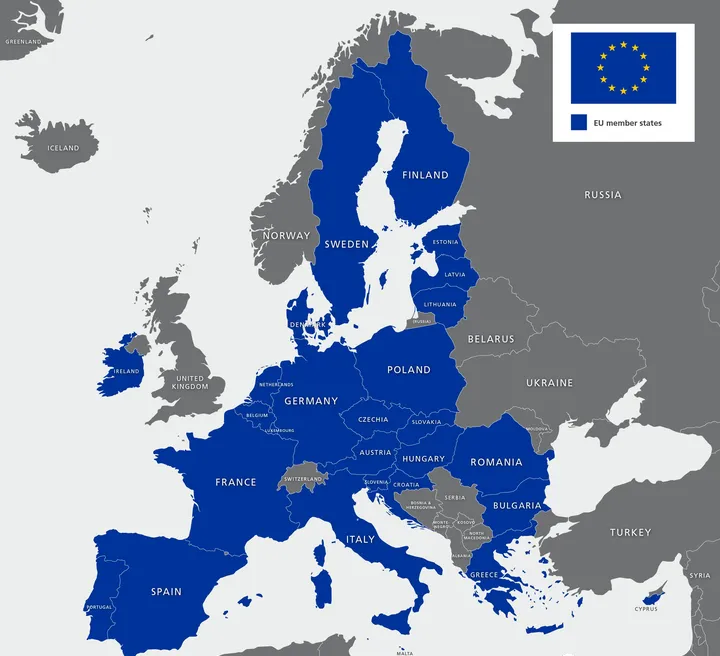
CE Certification and Declaration of Conformity
What is CE certification?
CE Certification is a mandatory product safety certification system implemented by EU countries to protect the safety of their citizens and property. It is consideRED a passport for manufacturers to enter the European market. CE Certification covers 80% of industrial and consumer goods in the European market and 70% of EU imports. According to EU law, CE Certification is compULsory; exporting products to the EU without it is considered illegal.

Specific Requirements for the ce mark
- Height: At least 5mm.
- Length: Combined length of the letters "CE" must not exceed 12mm.
- Width: At least 1/5 of the height.
- Thickness: At least 1/5 of the height, and the inner horizontal bar should be at least 80% of the outer radius.
- Scaling: Any resizing must maintain proportionality.
Additionally, product labels must include:
- Warnings and instructions in the local language.
- Manufacturer's or authorized representative's name, trademark, and address, along with any other labels required by local regulations.
- For electronic products sold in Germany, include electronic and packaging recycling marks.
Which Countries Require CE Certification?
ce marking applies to all 27 EU member states, including those added after expansions.
Non-EU countries requiring CE Marking:
- European Free Trade Association (EFTA): Iceland, Liechtenstein, Norway (excluding Switzerland).
- Turkey: Requires CE Marking as part of its efforts to join the EU.
Products Requiring CE Certification
Most products exported to the EU require CE Certification. Common examples:
- Power supplies: Chargers, UPS, etc.
- Lighting: Chandeliers, track lights, garden lights, etc.
- Home appliances: Fans, kettles, TVs, etc.
- Electronics: Earbuds, routers, etc.
- Communication products: Phones, fax machines, etc.
- Wireless products: Bluetooth devices, wireless MICrophones, etc.
- Machinery: Excavators, printing machines, etc.
- Toys: Mandatory for all toys exported to the EU.
Consequences of Non-Compliance
Non-compliance with CE Certification may result in:
- Products being denied entry at customs.
- Seizure or forfeiture.
- High fines.
- Market recalls.
- Criminal liability.
- EU-wide notifications.
Legal Basis of CE Certification
CE Certification involves adherence to EU directives, which are technical regulations outlining basic safety requirements. Examples include directives for toys, machinery, low voltage, etc. Products must meet all applicable directives.
How to Obtain CE Certification
Methods vary based on product risk levels:
1. Self-issued Declaration of Conformity (DoC): Suitable for low-risk products.
2. Certificate of Compliance: Issued by a third-party certification body, requiring test reports.
3. EC Attestation of Conformity: Issued by an EU Notified Body (NB).
Required Documents for CE Certification
- Declaration of Conformity
- Technical Documentation
- User Manual
- Test Reports
What is a Declaration of Conformity (DoC)?
The DoC is a document signed by the manufacturer or importer, proving compliance with EU regulations. It must include:
- Product name, type, and code.
- Manufacturer/importer name and address.
- List of applicable standards/directives.
- Signatory details and address.
- EU harmonized standards.
Who is Responsible for the Declaration of Conformity?
The entity introducing the product to the EU market is responsible. For manufacturers outside the EU, the importer assumes responsibility.
Who Can Request the Declaration of Conformity?
- Importers: Can request it from manufacturers.
- Market Surveillance Authorities: Evaluate compliance.
- Consumers and Retailers: May request it for transparency.
Manufacturer Responsibilities
- Drafting and maintaining the DoC.
- Ensuring batch production meets compliance standards.
- Providing traceable identification numbers.
- Including labels, trademarks, and user-friendly information.
- Correcting or recalling non-compliant products.
Technical Documentation Requirements
- Product description.
- Design schematics, wiring diagrams, and component lists.
- Test reports and quality control records.
- Risk assessment reports.
User Manual Requirements
- Installation instructions.
- Component overview.
- Safety precautions.
- Usage and maintenance instructions.
Is a Test Report Necessary?
While not always mandatory, test reports are often required for compliance verification by customs or market authorities.
Why is an eu authorized representative Necessary?
Non-EU manufacturers must appoint an authorized EU representative to ensure product compliance during distribution and use.
Email:hello@jjrlab.com
Write your message here and send it to us
 How Do You Get a CE Mark
How Do You Get a CE Mark
 IEC 60529 IP Rating Ingress Protection Standard
IEC 60529 IP Rating Ingress Protection Standard
 IEC 60601-1 Medical Electrical Equipment Basic Saf
IEC 60601-1 Medical Electrical Equipment Basic Saf
 European Authorized Representative Medical Devices
European Authorized Representative Medical Devices
 EU Waste Electrical and Electronic Equipment Direc
EU Waste Electrical and Electronic Equipment Direc
 How to Get CE Approval
How to Get CE Approval
 Accelerated Ageing Test
Accelerated Ageing Test
 IP Ingress Protection Testing
IP Ingress Protection Testing
Leave us a message
24-hour online customer service at any time to respond, so that you worry!




